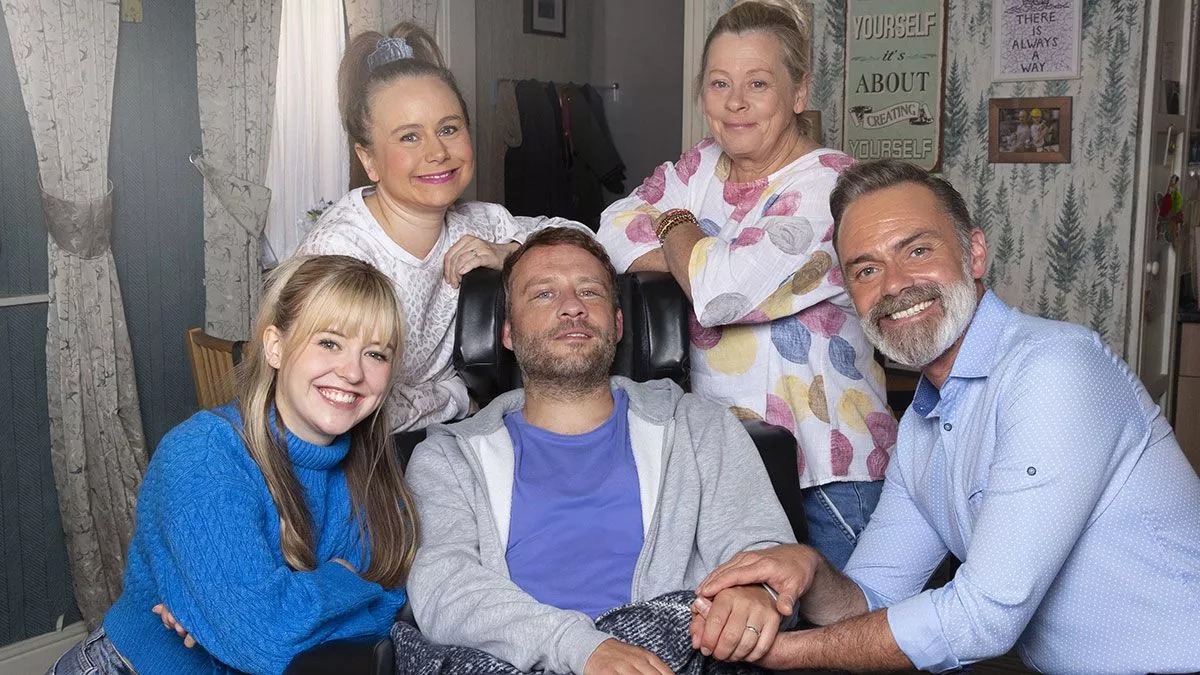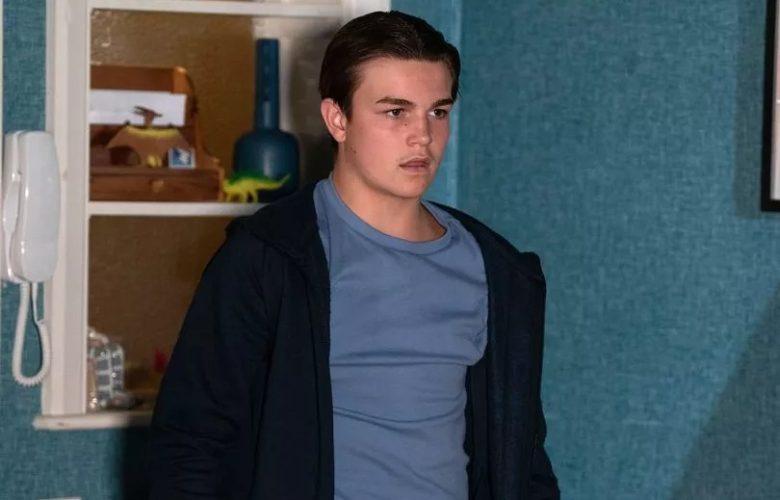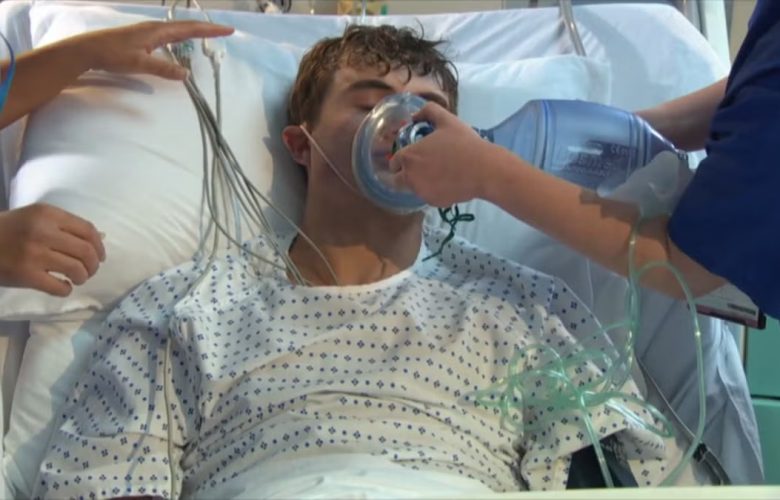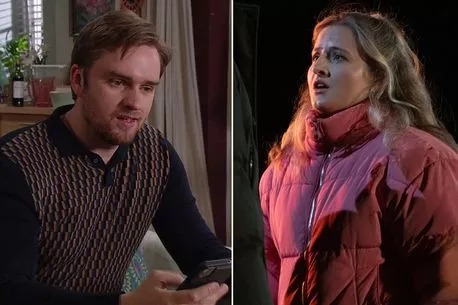Viewers have been warned to have tissues at the ready next week as Paul Foreman’s hard-hitting MND storyline draws to a heart-breaking close.
Coronation Street viewers are bracing themselves for Paul Foreman’s exit scenes as the character will succumb to motor neurone disease (MND), months after his last storyline first began in April, 2023.
Actor Peter Ash was announced to be on his way out of the ITV soap when his Weatherfield alter-ego Paul was diagnosed with the rare and incurable neurological condition last year after noticing his grip weakening, leading him to drop glasses and misthrow darts.
At the time, as Coronation Street bosses decided to tackle the destructive illness, Paul dismissed this as simple clumsiness before eventually receiving his diagnosis. But in another harsh twist, he was later given months to live.
Determined to make the most of his last moments, after initially trying to find a cure in a desperate bid to fight the disease, Paul made history by tying the knot with his on-off partner Billy Mayhew (Daniel Brocklebank) in emotional scenes.
Throughout his on-screen struggle, Paul has also had to come to terms with his condition as he progressively lost his mobility and ability to speak, while his nearest and dearest have gone above and beyond to take care of him.
The once active and chatty Paul has since been forced to use a machine to communicate and is confined to a wheelchair while soap fans fear he may only have hours left to live. A bleak and true-to-life nod to the lives of thousands of people across the UK.
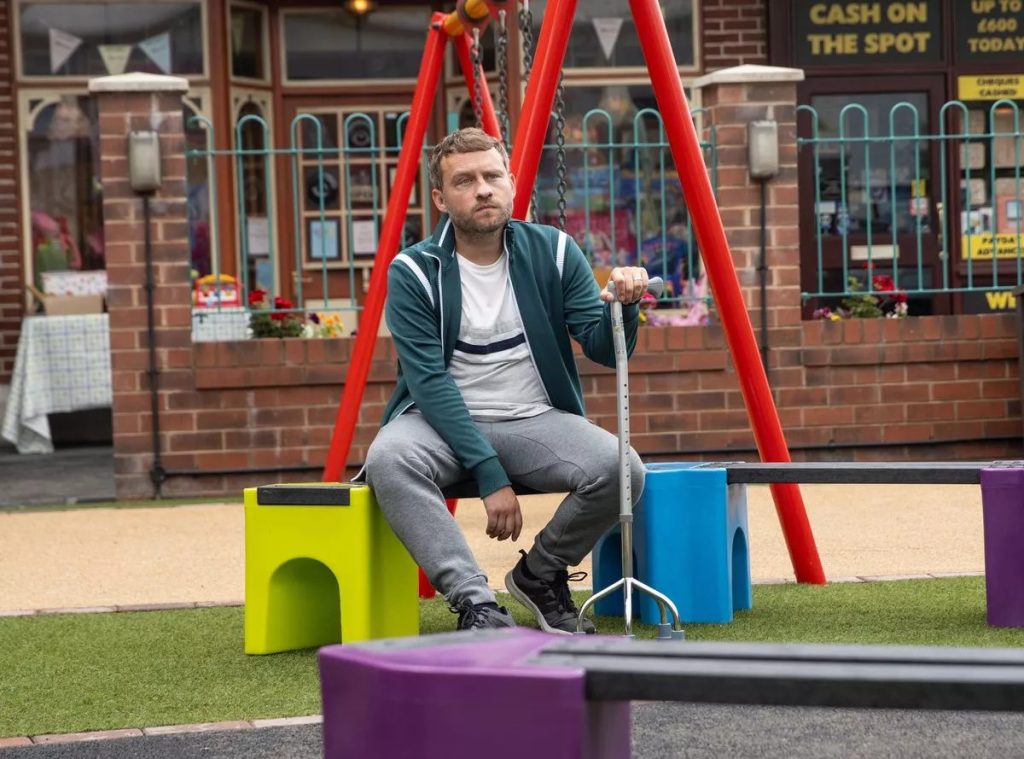
‘A cruel diagnosis’
Emotions have been running high among Corrie viewers since Paul’s diagnosis was first revealed. But as his time on the cobbles ends, fans of the Manchester-based drama are fearing what’s ahead.
“Going to be sad next week when Paul dies”, “It’s going to be absolutely heart-breaking when Paul dies. Peter Ash has played an absolute blinder and raised so much awareness for MND”, some have notably penned.
For context, motor neurone disease is considered a rare neurological condition, which is experienced by around 5,000 people in the UK according to the MND Association who have brought Corrie bosses support and guidance for almost two years to ensure the accuracy of Paul’s storyline.
MND affects the brain and nerves but, more specifically, the motor neurones, which refers to nerve cells in the brain and spinal cord that control muscle activity, from walking, speaking to swallowing and breathing. It remains an incurable disease to this day.
Off-screen, the devastation MND leaves behind was made clearer with the death of Rob Burrow on June 2, 2024. The former rugby player had been living with the disease since his own diagnosis in December, 2019.
Launched in 1979, the MND Association has been relentlessly fighting to raise awareness around the fight against the neurodegenerative condition, funding research to finally find a cure and, most importantly, working side-by-side with families of people who have been diagnosed with motor neurone disease, some of which have described how life-altering the disease can be.
“My mum, Daina, was full of life and very busy”, Helen, a married mother-of-two from Cumbria explained. “She used to knit, sew, paint, and do crafting. She loved walking and swimming. She’s not just my mum, she is my best friend and an amazing grandma of five. I’ve got two children and my brother’s got three so she would bring the whole family together.”
“I feel like I’ve been grieving for several years already because I miss the time we used to do things. You feel guilty for feeling like that because she’s still here.”
Helen spoke of how the illness had also affected her children, adding: “Mum was the head of the family, so it changed the dynamics. My little boy probably can’t remember her without MND. That’s normal for him, which is sad. My daughter is 14 so (she) can recall pre-MND and she was such a fun grandma. She was the grandma who said yes when mum said no.”
“The kids loved going there, and the cousins are close because they spent a lot of time together with her.” Helen also remembered the first time her mother displayed MND symptoms.
“Mum fell and broke her ankle. It was bad as she had plates put in and was in hospital for a while. The problems she was experiencing, we all put it down to the injury so that detracted from looking at other causes or symptoms. It was awful – not knowing what was wrong and why she couldn’t get over this injury.”
“Because she was so active all the time, and very independent, suddenly, her life was very limited. She couldn’t get out and about as much and was reliant on other people. Her legs were really swollen, and she thought that there was something wrong with the plate and asked to get it removed.”
Helen and her family had to wait several years before her mother was eventually diagnosed with motor neurone disease, describing a state of “limbo” as they were all adamant on getting answers.
“It went on and on and we were trying to find what was wrong with her legs. When the plate came out, and things didn’t improve, she kept going back and forth to the doctors.”
“She kept saying ‘things aren’t right, you need to look into it further’ and that’s when they started doing testing. Obviously, MND is very difficult to diagnose. There isn’t a test that you can do that says ‘yes, you’ve got it’ so you must rule everything else out first.”
Helen continued: “It took a few years from her ankle break to being diagnosed. You’re in limbo, trying to find an answer. It was awful getting the diagnosis, but at least we knew what it was and could deal with it.”
For the Daily Mirror, the MND Association’s Director of Services and Partnerships Sally Hughes has explained her perspective as she has been working with families affected by MND since 2021.
“It’s a really cruel and, you know, devastating diagnosis, and it really does grip you about wanting to do the best possible thing for people living with and affected by (MND)”, she told us, highlighting the “very rapid deterioration” patients with the condition experience
“The risk tends to increase with age”, Sally continued, “neurodegenerative diseases are very similar to other conditions such as dementia and Parkinson’s. So typically, we see most people diagnosed over the age of 55 but again, there are exceptions. There can be younger people that are diagnosed, and we do talk to people and see family members that are affected, that are under that age. Typically, it’s a disease that is linked to aging, and so over 55 is the kind of typical age.”
While cases vary, as Rob Burrow’s MND fight highlighted, Sally pointed out that most people who are diagnosed with motor neurone disease succumb to the illness within a year.Six people are said to die of MND every day.
“It’s a disease of the brain. Ultimately, what that looks like, that means that people can become locked in a failing body. You know, it will mean they’ll start to lose their ability to walk, move, talk and, unfortunately, eat and eventually breathe, so this is a very rapid deterioration and decline for people, losing all those things that are often the most basic of human experiences. You know, the ability to walk, the ability to enjoy food, the availability to speak.”
“Sadly, in terms of how rapidly people deteriorate, and the fact that it is a terminal life-limiting condition, people will die within that year, or certainly within two.” But Sally also spoke to us about the heavy stigma around MND symptoms as the disease continues to be misunderstood.
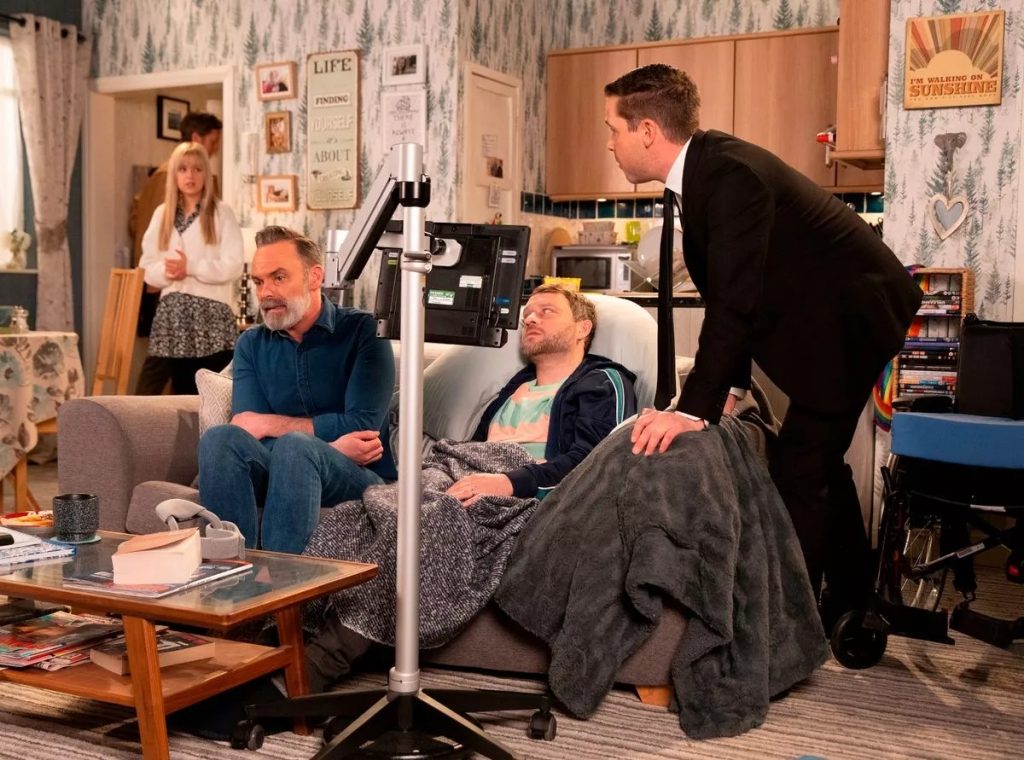
Stigmatised symptoms
When speaking about her diagnosis, Helen remarked that her mother was finding it difficult to keep up with her usual conversations as her daily activities quickly became overshadowed by her MND symptoms.
“We try to do stuff as a family, but the conversation flows and by the time she’s typed something, things have moved on. You need patience because it takes a long time to type out a message in response.”
“In a big group, it’s difficult because she feels left out unless you’re in a one-to-one chat with her. Although she’s there, she feels isolated”, Helen penned.
Rosie, whose own “independent, hard-working” mother was diagnosed with MND, noted a similar impact on her social life. But things became even more harrowing for her when a pub bouncer jumped to conclusions about her condition.
“Before mam was diagnosed, she was turned away from entering the pub because the bouncers thought she was drunk, because of her walking”, Rosie recalled. “But she’d actually barely drunk anything because she was so scared of being drunk, knowing that there was a problem, and she had a fear of falling, so she was really careful.” Coronation Street showed how damaging this could sometimes be as Paul was also thought to be inebriated when trying to catch up with his pals on the cobbles at the Rovers.
“That was the last time that me and my mam ever went out because she was mortified at being refused entry. We watched the Coronation Street storyline together and I thought it was really good what they did with Paul when they said he was drunk because it’s so true. People make judgemental assumptions and it’s literally what happened to my mam. That was hard to watch.”
For Sally, these wrongful assumptions are all too common and can be explained by a lack of awareness around motor neurone disease and its symptoms, which include a change in the person’s ability to walk and talk, or even a change in their voice.
“If they experience slurred speech, that’s a real challenge too, stigma wise, when people start to lose that speech, people can think they’re drunk and so those very, very basic things that we all take for granted day to day slowly slip away.”
Despite this, Sally Hughes noted that positive changes have begun as stars in the likes of Rob Burrow bravely stepped into the spotlight to share their day-to-day with the illness.
“I think our awareness has changed, certainly over the last few years, with brave people like Rob and other celebrities that have been brave enough to step into the public eye and share their experience”, she told us, but not without stressing that MND comes with a “personal sacrifice.”
“I talk to many people with MND who say they no longer have to explain what motor neurone disease is. They can say it’s what Rob Burrow had and they can point to that. It makes the explanation a little bit easier, but still, there’s a long way to go to understand it.”
“There’s much more to do from our point of view about raising awareness so that people can understand what the nature of this illness is and why it’s so important that we find a cure, ultimately, and that’s what we’re working hard on.”
Sarah, who also had a direct experience with MND when her own mother received her diagnosis, underlined another side of the disease, making it clear that watching your body shut down can be equally damaging to one’s emotional well-being, further stressing the importance of a cure.
“As the disease progressed it was hard to keep mum positive”, Sarah wrote, “the GP put her on antidepressants, but some people never come to terms with their diagnosis and my mum was one of them.”
“My mum had some bad days where she would cry all day and would be in a bad place. She went from being an incredibly active young grandmother with plans for her retirement to being sat in a rise and recliner chair all day. Watching that was something I will never get over.”
“We lost mum the day she was diagnosed. Not physically, but her spirit. There were glimpses of her old self throughout the two years and there were moments where she would laugh, but it wasn’t the same. By this point though I suppose none of us were the same. It changed everything and everyone.”
As a result, Sally stressed the importance of awareness around MND and encouraged people “to read up on motor neurone disease and find out more about what Motor Neurone Disease is. That really helps spread the message”, most notably on the MND Association’s website.
Meanwhile, the organisation focuses on a more long-term solution as Sally spoke about the MND Association’s hopes for a potential cure: “It’s a very complex disease, and we’re funding lots of research, and we’ve been pioneers in funding research, into discovering what the biology of MND is, what what the kind of basic components are of what might what MND is, what it what it does in the body and understanding that nature of the disease.” In the last year, the MND Association funded “£21 million worth of research to help with
